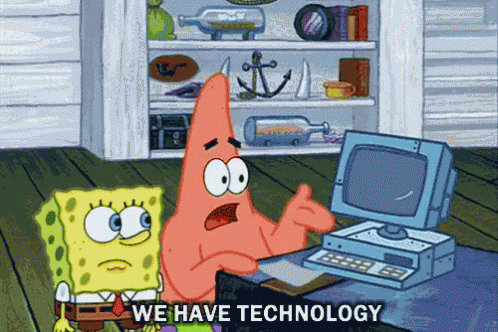Can You Hear Me
A exploration of the software ecosystem and the importance of recommendations
Chapter 1:
Software overload
Chapter 2:
Gems in the rough
Chapter 3:
Solutions from the Portal
Software Overload
So many ways to do the same thing - so little time!





Are any of these useful?
Yes...
- Great for common software overview
- User feedback can provide answers to FAQs
- Comparisons between software on rare occasions
- Some reviewers are very technical
and no.
- Bias? Of course...
- Many marketing sites disguised as review sites
- Reviews skewed towards popularity, tech community, etc.
- Niche interests non-existant
- Outdated
- Small projects absent
A case study:
Telematic performance
AlternativeTo - good job!

Some fields are niche

Hmm...

Major issues persist
Regardless of these popular sites:
- There's a lot of software
- There are a lot of ways to compare these solutions
- Many sites claim to provide honest opinions
- Baseless trash :)
- Only some of these software are applicable to our interests
- Even fewer are suitable and worth installing
Authenticity!
Turn to personal blog sites (MCT!) or even Reddit.com for independent reviews?
Other options?
- YouTube tutorials
- Sub-reddits
- Specific forums
- Search results....



And for those with limited technical knowledge?
Better alternatives should exist, not dependent on high technical literacy or spending time scouring the web
Gems in the Rough
What do we learn from navigating a heap of software?

First impressions
- How easy is it to get up and running?
- How intuitive is its UX/UI?
- Does it serve its intended purpose?
- "Game-breaking" bugs
A few things we find out quickly
Later, we discover even more
- How much control is afforded?
- How deep can we dive?
- Is technical support ample?
- Forums, community
- Scalability
- Teams, different platforms or networks?
- Compare across past experience
- Accessibility - appropriate levels of technical detail?
A pedagogical process
Testing and thorough explorations benefit everyone - but hard work!
A sense of the software ecosystem brings an understanding of current possibilities

And we ought to be the best at this!
This work is incredibly critical at the present moment
Recent trends





Data from Google Trends
Which aspects of a review are meaningful?
In my experience:
- Bias
- Technical detail
- Latest update
- Accessibility
- Comparisons/recommendations
Can You Hear Me
From the Portal to your computer
Addresses major concerns
- Bias
- Institutional, non-affiliated, external links
- Technical detail
- Deep and purposeful (use-driven)
- Latest update
- Easy to update (open source)
- Accessibility
- High and low levels
- Comparison/recommendation
- Compare across services tables automatically

Inspired by MCT
MCT offered a unique angle to start a project like this - we've already covered so many!
Wikis and guides collected from the pool of MCT knowledge

Acessible to contribute

Don't have to deal with messy HTML/CSS
Layout is simple, clean, and unified across services making it easy to find information
Easy to update!


Provide additional recommendations or address major concerns
Commentary
Range of technical detail
Not limited to generalities or paragraphs of endless description to find out capabilities
In its infancy
A long road ahead, but...
- Based on well supported platform (Docusaurus by Facebook)
- Adding/updating content is easy with unified templates, as well as guides
- Nothing like it for the field
- May be a great resource with just more content!
Looking ahead
- A table to compare different services across different details
- Simpler method of adding new entries (auto-fetch new info)
- More guides!
- An easy way to convert MCT guides into a unified style
- Make the scope even clearer
